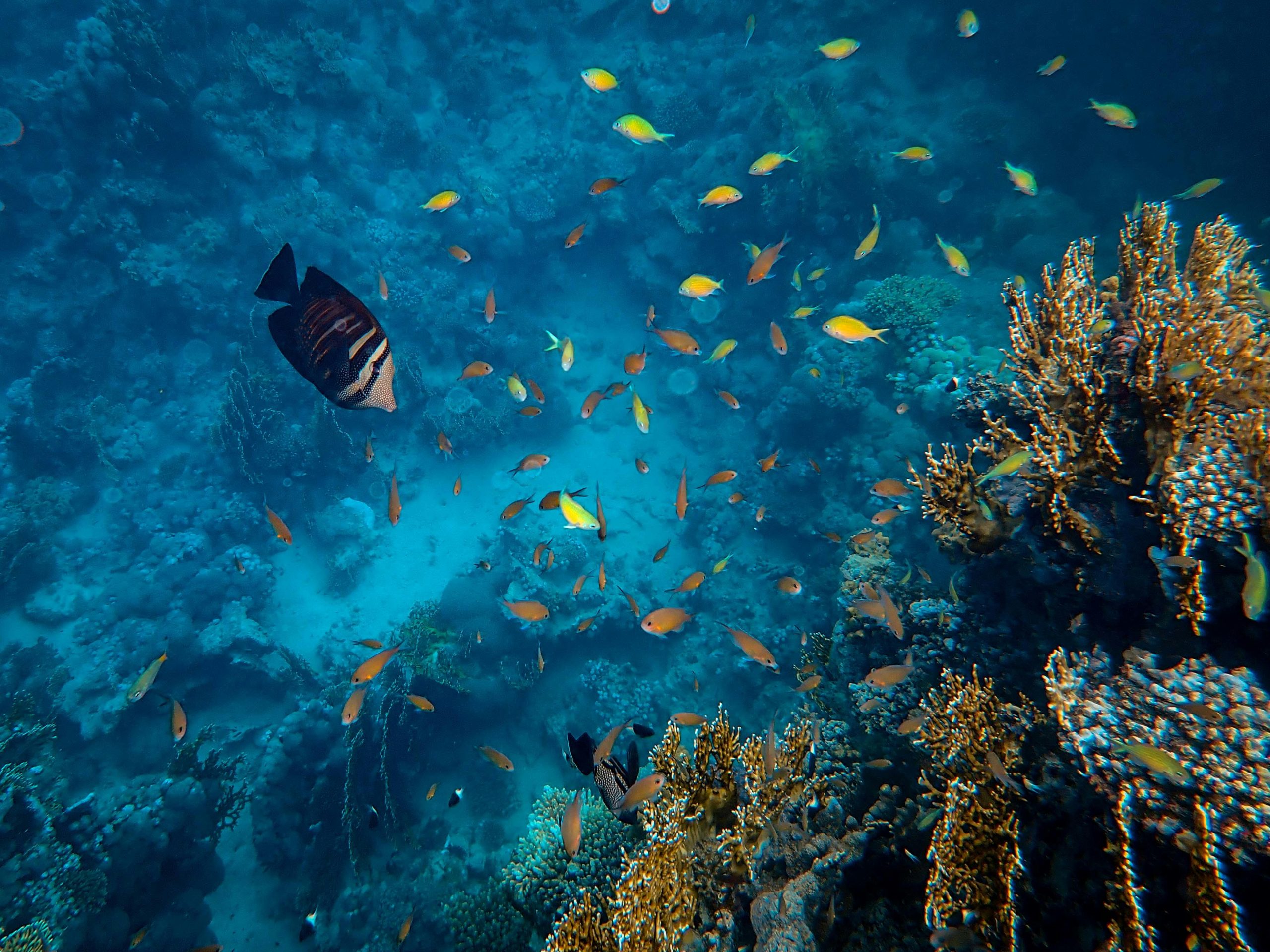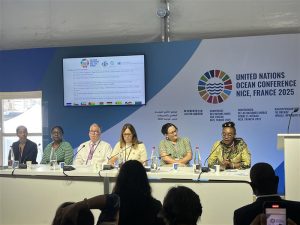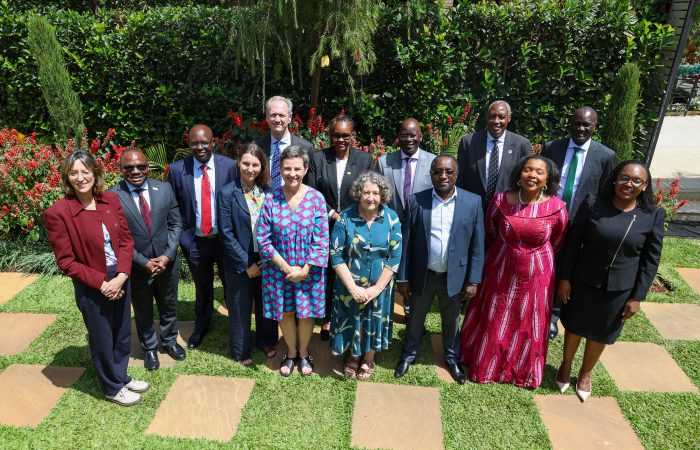
A breakthrough moment for global oceans—and a call to action for Africa’s financial sector
Key highlights
- Two global ocean milestone events mark a turning point for ocean finance – and a major opportunity for Africa.
- Oceans are economic lifelines for African states, yet remain dramatically underfunded and undervalued.
- Blue finance isn’t just about conservation. It’s about jobs, food, financial resilience, and long-term prosperity.
- Four shifts are urgently needed to unlock blue finance at scale: policy reform, investment and pipeline innovation, science-based data and standards, and institutional capacity.
- ANCA is stepping up, developing a new Blue Finance Hub for African Indian Ocean SIDS to drive regional momentum, partnerships, and private financing flows into the regenerative blue economy.
A Breakthrough Week for the Ocean Economy
This month, the global ocean agenda reached a new high-water mark. At the UN Ocean Conference (UNOC) in Nice and the Blue Economy and Finance Forum (BEFF) in Monaco, world leaders reaffirmed their commitment to protect ocean ecosystems, while scaling the finance needed to secure them.
At BEFF, over 2,000 delegates from 100 countries spotlighted blue finance as central to a thriving ocean economy, unlocking €8.7 billion in new commitments, with €1 billion ready for deployment in 2025.
UNOC was equally historic, convening the largest-ever gathering of leaders focused on ocean action. Over 7,000 delegates, including over 20 heads of state and hundreds of financial, policy, and civil society leaders, backed a global push for ocean protection, equity, and investment. The conference advanced momentum on several critical fronts:
- The BBNJ High Seas Treaty is now just 5 ratifications away from entering into force.
- The WTO Fisheries Subsidies Agreement is awaiting ratification threshold and close to enactment.
- 37 countries called for a moratorium on deep-sea mining.
- The Nice Ocean Action Plan and Nice Ocean Declaration laid the groundwork for scalable, accessible finance aligned with SDG 14.
- Many countries are banning bottom trawling with the UK formally announcing its ban during the BEEF.
The message is clear: oceans are at a tipping point, and financial systems must now respond at scale.
Why Blue Finance Matters for Africa’s Future
As Christine Lagarde, the President of European Central Bank underscored at BEFF: oceans are not just ecological assets, they’re foundations of economic and political stability.
Oceans absorb 90% of excess heat, store around 30% of global CO₂ emissions, and provide food, jobs, and resilience for billion people. Yet climate change, overfishing, bottom trawling and exploitation is pushing oceans to the brink. Rising seas, collapsing coral reefs, fish stock declines and ocean acidification threaten not only marine life but macroeconomic and financial stability worldwide, and particularly across Africa’s 38 coastal states and 30,000 km of vulnerable coastline.
A study by the University of California found that the loss of coral reefs could lead to flood damage equivalent to what is expected from climate change by 2050. Specifically, the study highlights that losing just one meter of reef height would increase the area affected by 100-year flooding by over 20%, impacting thousands more people and causing billions of dollars in damage.
As mentioned by Agnes Pannier-Runacher, France’s Ecological Transition Minister, this is about “sovereignty, food security, energy security, oxygen security and peace.” The global goal of protecting 30% of the ocean by 2030 and managing the remaining 70% sustainably is not just an environmental target, it’s an economic and human imperative.
Despite these stakes, oceans receive less than 1% of climate finance, with even less flowing to Africa’s coastal and island nations. This is a missed opportunity. The global blue economy is worth $2.5 trillion annually. Africa, with its growing coastal populations, youthful workforce, and vast marine assets, is uniquely placed to lead a new era of sustainable blue growth.
A wave of financial innovation is already underway, including blue bonds, coral reef insurance, mangrove restoration, and blended capital platforms. Over 80 global financial institutions, managing $11 trillion+, have endorsed the Sustainable Blue Economy Finance Principles. The tide is turning. Africa must lead, not follow.
What Must Shift: Four Priorities to Unlock Blue Finance at Scale
1. Align incentives and financial policy.
Ocean degradation is still often subsidised through harmful fisheries, fossil fuel incentives, and extractive practices. With just 1% of ODA supporting the blue economy, national governments must develop investable blue economy strategies backed by clear legal frameworks. Regulators and central banks also have a role to play, integrating ocean-related risks into financial policy to shift capital from harmful sectors toward regenerative growth.
2. Strengthen standards and data transparency.
As blue finance grows, so does the risk of “blue washing.” Clear, science-based metrics are essential to avoid mislabelled projects. Investors need access to decision-ready ocean data and platforms that translate marine science into actionable investment insights.
3. Build pipelines and unlock capital.
Finance-ready blue projects remain scarce. There is an urgent need for technical assistance and early-stage support to scale investment platforms, blue bonds, carbon markets, and other innovative tools, especially in low-income countries. A stronger pipeline will unlock more private capital for ocean resilience.
4. Shift institutional mindsets and capacity.
Institutions must revalue marine ecosystems as productive assets, not liabilities. Marine protected areas (MPAs) can boost local incomes while restoring biodiversity. Like climate finance, ocean action is a safeguard of long-term value. Efforts on climate, nature, and oceans must be integrated to drive natural recovery and long-term resilience.
ANCA’s Next Wave: Stepping up on Blue Finance
Africa cannot afford to be left behind in the global blue finance transition. That’s why ANCA is expanding its focus by establishing a Blue Finance Hub for African Indian Ocean SIDS, headquartered in Mauritius and covering various African Indian Ocean Islands. This platform will drive coordination, unlock blended finance, and scale nature-positive investments across island states. With over 130 members managing £1 trillion+ in assets, ANCA is uniquely positioned to align global ocean expertise with African priorities. The Hub will formally launch later this year, and we welcome collaboration from our members. In the months ahead, we’ll release new thought leadership, engage regional partners, and begin delivering projects across four pillars: policy, investment pipelines, data & metrics, and capacity building.
As Costa Rica’s President Rodrigo Chaves said at BEFF: “Vision without action is just hallucination.”
At ANCA, we choose action. The momentum is real. The opportunity is now. And Africa is ready to lead.



